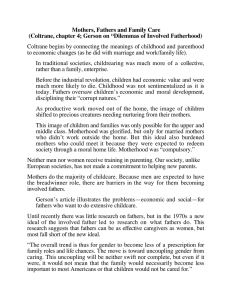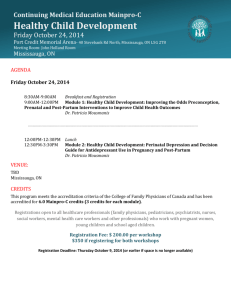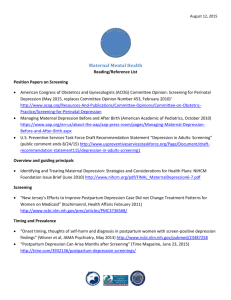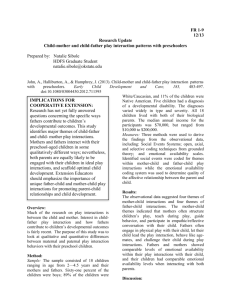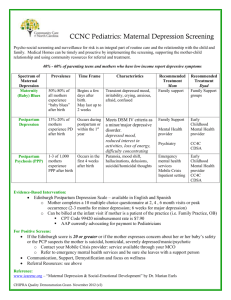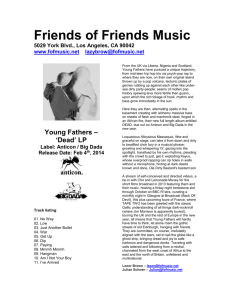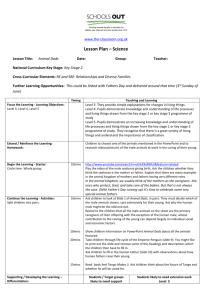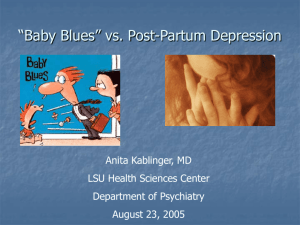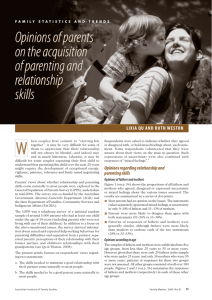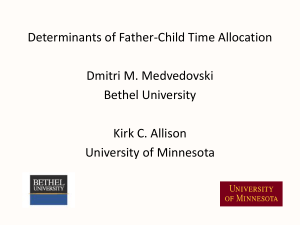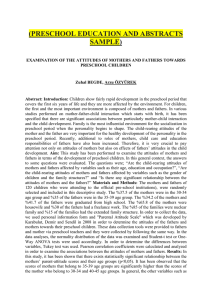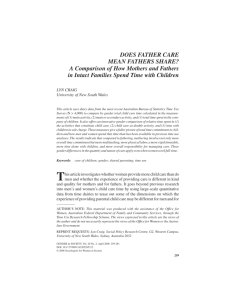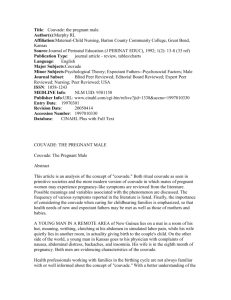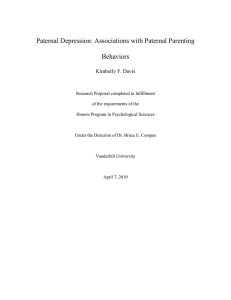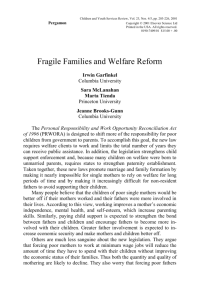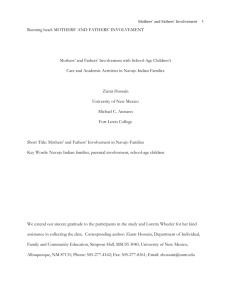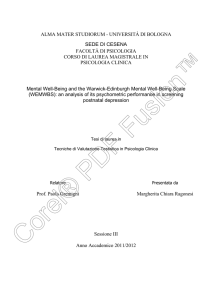Today`s story hails from the New York Times, entitled “Postpartum
advertisement
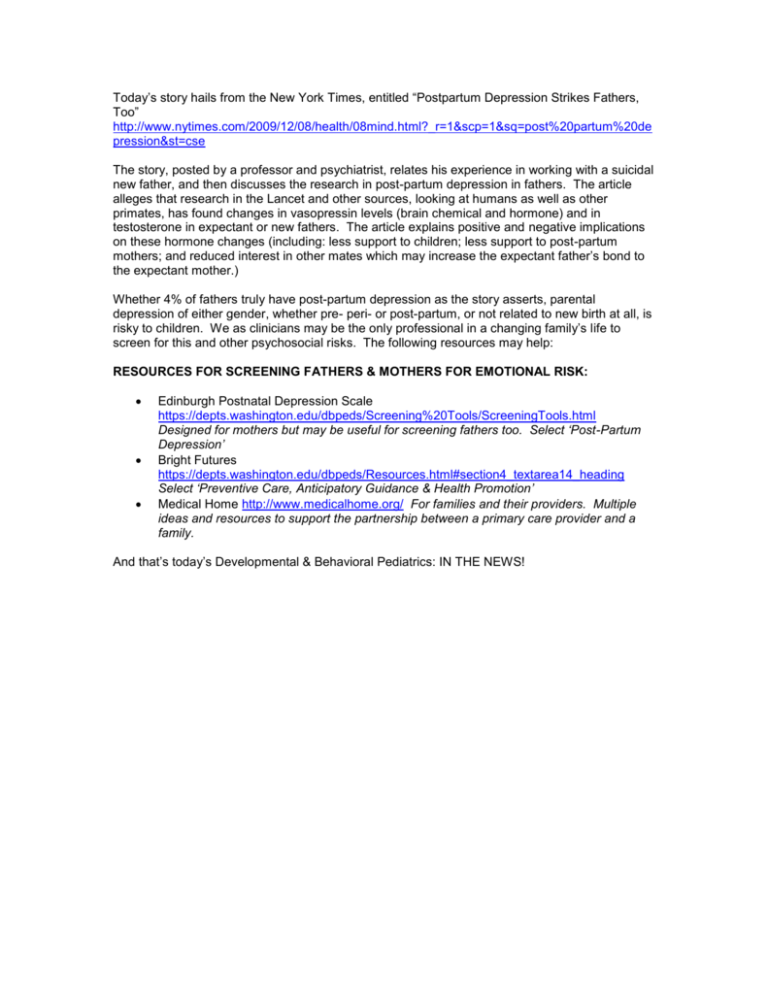
Today’s story hails from the New York Times, entitled “Postpartum Depression Strikes Fathers, Too” http://www.nytimes.com/2009/12/08/health/08mind.html?_r=1&scp=1&sq=post%20partum%20de pression&st=cse The story, posted by a professor and psychiatrist, relates his experience in working with a suicidal new father, and then discusses the research in post-partum depression in fathers. The article alleges that research in the Lancet and other sources, looking at humans as well as other primates, has found changes in vasopressin levels (brain chemical and hormone) and in testosterone in expectant or new fathers. The article explains positive and negative implications on these hormone changes (including: less support to children; less support to post-partum mothers; and reduced interest in other mates which may increase the expectant father’s bond to the expectant mother.) Whether 4% of fathers truly have post-partum depression as the story asserts, parental depression of either gender, whether pre- peri- or post-partum, or not related to new birth at all, is risky to children. We as clinicians may be the only professional in a changing family’s life to screen for this and other psychosocial risks. The following resources may help: RESOURCES FOR SCREENING FATHERS & MOTHERS FOR EMOTIONAL RISK: Edinburgh Postnatal Depression Scale https://depts.washington.edu/dbpeds/Screening%20Tools/ScreeningTools.html Designed for mothers but may be useful for screening fathers too. Select ‘Post-Partum Depression’ Bright Futures https://depts.washington.edu/dbpeds/Resources.html#section4_textarea14_heading Select ‘Preventive Care, Anticipatory Guidance & Health Promotion’ Medical Home http://www.medicalhome.org/ For families and their providers. Multiple ideas and resources to support the partnership between a primary care provider and a family. And that’s today’s Developmental & Behavioral Pediatrics: IN THE NEWS!

